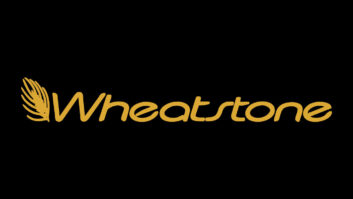Broadcasters Are in Unfamiliar Territory When Their Podcasts Compete With User-Generated Content
The ongoing evolution of the Internet has engendered a democratization of audio distribution that continues to expand. What started with a few webcasters doing streaming radio has now grown to a major marketplace of user-generated content (yes, now it’s even got an acronym, “UGC”) via the medium of podcasting.
Yet, as this column has frequently remarked, nothing stops broadcasters from themselves partaking in this expanding universe with their own offerings, and promoting the existence of these new services to their “legacy” audiences over the air. This produces an interesting market dynamic, still emerging, where large corporate purveyors of audio services are competing for ear time with small independent operators and even private individuals. This is sort of analogous to a shopping mall where big anchor stores compete with small boutiques and vendors on carts, kiosks and blankets on the sidewalk.
Just as quality control is often erratic in such a shopping environment, so, too, is compliance with relevant laws and regulations in the Internet audio world. The odd juxtaposition of broadcasters’ content against UGC in many podcasting venues illustrates this divergence.
Time was when broadcasters only competed with other broadcasters, so the rules were relatively stable and a level playing field was maintained. It was understood that if someone tread outside the commonly accepted boundaries, they’d be quickly called on it – it was broadcasting, after all, so there weren’t any secrets about what you were doing – and the stakes were high.
Now, however, it’s possible to find a wide range of compliance regimes, generally set and enforced by a site’s host, making it difficult to compete fairly. Broadcasters aren’t used to this kind of moving target, and also are pretty risk-averse, so this environment is not perceived as a very friendly one.
The site hosts don’t like it much either, since they have to set many of their own rules and then manually monitor each posting individually for compliance, a labor-intensive exercise.
Nevertheless, the popularity and growth rates of these sites have kept them a hot property for the online services industry, and thus it is important for broadcasters to keep a presence in this space, while monitoring activity for the emergence of any new trends, which will likely continue for some time (if not permanently).
Breaking the code
Podcasts are a great example of the need for copyright law reform.
Even though the law continuously has been made more granular and complex in an attempt to keep up with new media forms – and is now an almost incomprehensible morass of patched-up rules – podcasts defy categorization. They seem to fall directly into a gray area of existing regulations.
Nevertheless, unless and until such reform takes place, all podcasters, and particularly broadcasters, need to follow the existing rules if they wish to avoid legal troubles. Interestingly, the most daunting rules and highest risks involved with podcasting today are not associated with indecency, but with music licensing. (Each UGC posting site has its own rules about adult content – many don’t allow it – but these are based mostly on business considerations, not legal ones.)
Usage of published music content (or TV and movies) online, on the other hand, is an area fraught with controversy, with much current activity in the arenas of regulation, legislation and litigation (a three-ring legal circus, some might say). Thus, while the industry waits for wholesale copyright law revision, what’s legal for podcasting of music is continually affected by piecemeal changes in rules, statutes and case law.
That’s why many have welcomed the recent publication of a comprehensive set of guidelines for podcasters called “The Podcasting Legal Guide, v 1.0.” Although it opens with the requisite caveat against taking its words as legal advice (also repeated as a footer on each of its 30+ pages), it bears a lineage of the highest legal pedigree. Its authors are Colette Vogele, a fellow at Stanford University’s Center for Internet and Society; Mia Garlick, general counsel for Creative Commons; and collectively, Harvard Law School’s Berkman Center for Internet and Society, specifically its Clinical Program in Cyberlaw.
The guide includes a foreword by Lawrence Lessig, arguably the Johnny Cochrane of digital law, who spends most of his space railing against the current state of copyright law, but meanwhile recommending the guide. He also manages to get a plug in for his Creative Commons organization, and after perusing the guide, the reader likely will be persuaded that any effort toward simplification of the process, as CC attempts, is laudable.
The publication addresses legal issues in both the content and the distribution of podcasts, and although it is clearly written with the legal layperson (“amateur” podcaster) in mind, it applies broadly and equally well to “professional” (e.g., broadcasters’) podcasts. It also includes a brief history and technical explanation of podcasting, and provides a rich set of additional resources.
The guide’s most useful information for broadcasters is probably its coverage of music rights in an up-to-the-minute treatment of substantial depth, as well as its clarification of what might constitute “fair use” – an often misapplied term.
Considering the subject matter, the guide is surprisingly readable and refreshingly free of legalese. Its frequent use of examples and scenarios helps illustrate the issues in real-world ways for broadcasters.
For broadcasters who are trying their hand at podcasting, or those considering it, this guide is worthwhile reading. If nothing else, it provides a good briefing on just how different from traditional broadcasting the world of podcasting and UGC is – and yet how much it is the same.
The guide is available at http://wiki.creativecommons.org/Podcasting_Legal_Guide.












